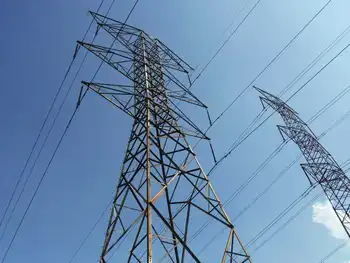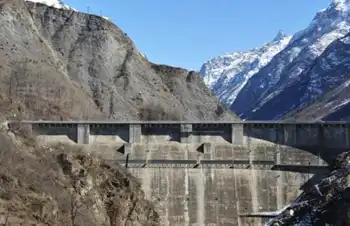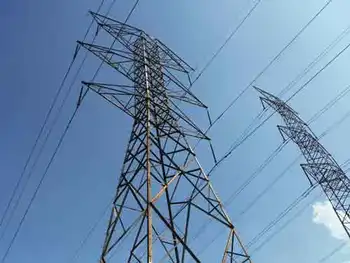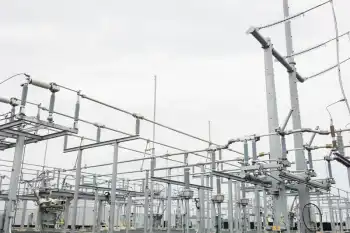Three secure interest in rate case
By Arkansas Democrat Gazette
Substation Relay Protection Training
Our customized live online or in‑person group training can be delivered to your staff at your location.

- Live Online
- 12 hours Instructor-led
- Group Training Available
The order by the Arkansas Public Service Commission's three-member panel comes after the commission's staff, SWEPCO and the state attorney general's office advised that the environmental groups offered no specific reason to serve as intervenors and that a group of SWEPCO ratepayers also seeking standing could be adequately represented by other parties.
Staff also asked for proof that the ratepayer group, Customers Advancing Responsible Rates, was not just a shell group of the environmentalists already seeking intervention.
Yet the panel ruled that the Sierra Club and Audubon do have interests that "may not be adequately represented" by other parties to the case. Such interests include how rate design affects energy consumption, an issue both groups described as their "primary interest" in the case, the panel found.
Other interests include a $129.8 million delay by SWEPCO in environmental expenses and its proposed recovery of construction work-in-progress costs for the John W. Turk Jr. coal-fired power plant near Texarkana, as well as the J. Lamar Stall natural gas-fired plant under construction in Shreveport, the panel stated in its 13-page order.
The panel did not grant intervenor status to the ratepayer group or other ratepayers, however, finding that their interests are adequately represented by the environmental groups.
However, the commission warned the Sierra Club and Audubon not to attempt to revive other issues involved with the Turk plant, such as its approval by the commission last year and the approval of power lines that would link Turk to the electric grid.
The environmentalists and the ratepayer group oppose a rate increase because it would help fund a $2.1 billion project to build the Turk plant.
"The petitioners had the opportunity to intervene in all dockets relating to the Turk plant and the Stall plant and simply chose not to participate as an intervenor" except in the power-line cases, the commission concluded.
Ilan Levin, an attorney who represents the Sierra Club, was participating in a hearing before the Arkansas Pollution Control and Ecology Commission and was unable to offer immediate comment.
Former SWEPCO Executive Vice President Venita McCellon-Allen issued a handwritten statement: "SWEPCO respects the commission's decision and will work respectfully with all intervenors. However, SWEPCO expects the Sierra Club, the Audubon Society and Audubon Arkansas to respect the commission's previous decisions and abide by the limitations of this order."
McCellon-Allen is now with American Electric Power, SWEPCO's parent.
In other Turk-related news, an environmental consultant testified that "best available" pollution controls for facilities like Turk are not always the highest-rated when examined by permitting agencies.
As air-permit-appeal hearings for Turk entered their second week, witnesses for SWEPCO and plant opponents addressed whether the Arkansas Department of Environmental Quality properly considered the "best available" and "maximum achievable" emission controls in issuing the permit.
Although certain technologies, such as a wet or dry scrubber, may emerge as superior for a certain plant in minimizing harmful emissions, it is not the sole criterion weighed by permitting agencies such as the state environmental department, said Bliss Higgins, a principal with Baton Rouge, La.-based Environ International Corp.
Along with environmental factors, issues such as the plant's energy output, the economic needs of the surrounding area and various costs that each technology would entail also must be evaluated, she said.
Coal-fired plants generally employ one of two types of scrubbers, wet or dry, which capture pollutants such as sulfur dioxide by using absorption to remove or "scrub" them from flue gases.
The dry process captures, treats and dries pollutants that are collected in a "baghouse" and later stored in a landfill. The wet process is similar, except pollutants oxidize in a reaction tank and become a form of gypsum used to make products such as wallboard or cement, according to the Environmental Protection Agency.
The EPA concludes that wet scrubbers generally are more effective than dry scrubbers, while dry scrubbers are cheaper.
Utilities such as Entergy Arkansas Inc., which plans a $1 billion project to install a dry scrubber at its White Bluff plant near Redfield, touts dry scrubbing as 90 percent effective while being more protective of the environment. Other power providers, such as Atlanta-based Mirant, claim 98 percent removal of sulfur dioxide using wet scrubbers at its plants while producing minimal landfill waste.
SWEPCO intends to use a dry scrubber at Turk, a decision that the state environmental quality agency affirmed, Higgins said. When low-sulfur coal such as that from Wyoming's Powder River Basin is used, the effectiveness of wet and dry scrubbers are closely comparable, she said.
According to pre-filed testimony from SWEPCO officials, the cost of a wet scrubber for Turk would have been about $176 million, compared with $102 million for a dry scrubber.
When asked by agency attorney Anne Weinstein if cost can influence which approach is used when emissions technologies are so closely rated, Higgins replied, "Yes."
Higgins also noted that what constitutes the "best available" pollution controls at one plant is not necessarily the same for other plants, but that limits on Turk's emissions are some of the most "stringent" in the nation.
"When you stack [Turk's air permit] against other permits for sub-bituminous coal boilers, it's a very strong permit," she said.











